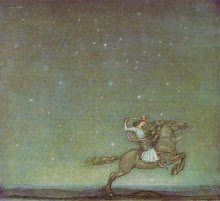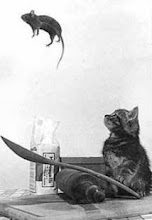The Countdown has now expired, but we are not homeless, yet. When there is anything definitive to report, I will shout it out. Meanwhile, the feedback I've listened to has made it evident that the greatest misconceptions today, (held about nearly everything), are 'assumptions'. In particular, assumptions that over-simplify very complex issues like: what things lead to homelessness; where is the line between a person's own responsibility and the responsibility of the community he or she lives in; etc. A person does not become homeless suddenly. It is a gradual fall of one domino upon another, each feeding to the velocity of the decline.
So, I'm starting a new series and calling it, It's Time You Knew... to discuss individual aspects of the domino effect that so many have in common and, hopefully, to inform people on things that are widely misunderstood. As in most of my writing, I begin with my own personal experience of things that many people share in common with me.
It is time to raise this conversation above the level of the merely "personal", out of the genre of 'sob-blog' and relate it to a larger scope where it can do some good. So, welcome to the first installment of—It's Time You Knew...
In Praise of Mules
I have a disability which seriously limits the kinds of work I can do that is called chronic neuropathic pain, or chronic pain syndrome. About 40% of all Americans suffer from chronic pain at some point in their lives, but not all chronic pain develops into the syndrome. A syndrome is a collection of clinical signs and symptoms that reoccur together. But, what makes all syndromes difficult to treat is that different people have different combinations of these signs and symptoms.
It's not well understood medically because it can appear to be many different things—therefore is it difficult—nearly impossible—to treat. Many things can increase the severity of the pain—stress, lack of quality sleep, barometric pressure, humidity, depression, certain foods, etc. –and often bring on more severe pain or other symptoms.
I have not yet found an effective treatment that didn't have worse side-effects than the pain itself. I do not take pain medications anymore. I would rather be in pain and alert than not in pain and stupefied. Besides, pain medication seemed to destroy my connection to others, to myself and to my spiritual life. I learned how to manage my pain with rest, pacing and light exercise—but 'manage' is a misnomer—since it implies that I make the pain go away. I don't. I can't. I can only make it less severe or do things that will keep it from getting worse.
That's the compromise. I can live with that. But it means that I live with some level of pain 24 hours a day, 7 days a week. It means that I cannot always predict how much I will be able to do in a day. Some days I am at least as productive as anyone else, but more often, I live with the disappointment of an unfinished To-Do List which rides rough on the self-esteem.
I rarely mention this disability because part of my pain management is that I pretend it isn't there. Until they invent a device that can objectively measure pain, this syndrome and others like it are often hailed as 'all in the head' –implying that the pain is imaginary. But anyone who has ever had chronic pain knows it's very real.
The subsequent fall-out from it run the gamut—lost jobs, damaged relationships, financial ruin, depression and, a very high rate of suicide. It invades every part of a person's life and takes a devastating toll. Considering all this, I feel grateful to be able to show up, everyday, alive.
So, I do. I show up. I do what I can. I have learned not to allow jackals much air-time in my head. I've even learned not to let them have the satisfaction of getting me angry. On the occasions that they turn out to be someone close to me, I get wounded, like anyone. However, my bounce-back-ability gets stronger with every encounter. If I hold on to resentments towards them, it only causes the pain to increase, so I've woven a line of logic that says, "You canNOT have a piece of me!" I have had to learn compassion and forgiveness, not because I'm some sort of saint, but out of self-defense.
Many people who are homeless today began their slide into homelessness with some kind of medical problem or serious injury. The lion-share of bankruptcies in our country is a direct result of massive medical expenses that devastate a person or a family and threaten their hard-earned security. Many of these victims are left in chronic pain, unable to assume the level of performance that once kept them in their jobs. Often the chronic pain leads to a pattern of physical addiction, where the body's tolerance of medication increases as the pain increases too.
Doctors don't like to treat chronic pain, not because they're bastards, but because it makes them subject to medical boards that see it as their mission to stop drug abuse. These medical boards target doctors who write prescriptions for narcotics and threaten their licenses to practice medicine, sometimes for the smallest infraction. And, by the way, it has yet to be proven that these dope-dealing-doctors contribute one iota to our country's problem with drugs. The real victim in this political battle, however, is the person already suffering from chronic pain. Domino number 3 or 4 begins to tip toward the next one... Now, in terrible pain, left without the benefit of a withdrawal program, he searches desperately for some relief and finds it in street drugs...and so the next domino falls, and the next, and it isn't far to go to that state that everyone finds repulsive: Homelessness.
I was lucky that my chronic pain did not lead me to look for relief out on the streets. My doctor got me into a pain clinic just before his battle with the medical board began and I responded well to the alternative treatments for pain. But I could have gone that direction; there is no doubt in my mind. But that was only one of the potholes I avoided in the decline that chronic pain caused in my life and is still causing.
I don't want to give the impression that I've got this all under control. The only way that I gain any kind of skill is by falling down and getting up again. It's a constant cycle of trying, failing, getting back up and trying again. My grandmother used to brag that I was the most stubborn child she'd ever known. It's a character defect, I know. But, without it, I'd probably be in worse shape or dead. Maybe I was made that way to prepare me for this battle that I've been fighting for over 16 years. If I every write a book about chronic pain, I shall call it, In Praise of Mules.
Copyright © 2009 Stephanie Ericsson























No comments:
Post a Comment
Please! Do leave your comments, shared experiences and suggestions are very welcomed. And also a way to contact you. Thank you!